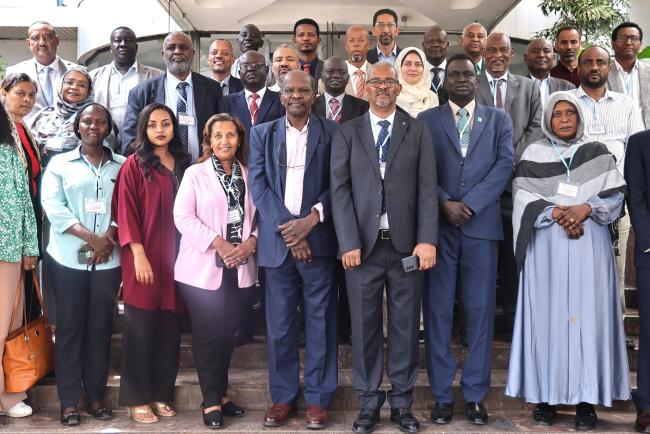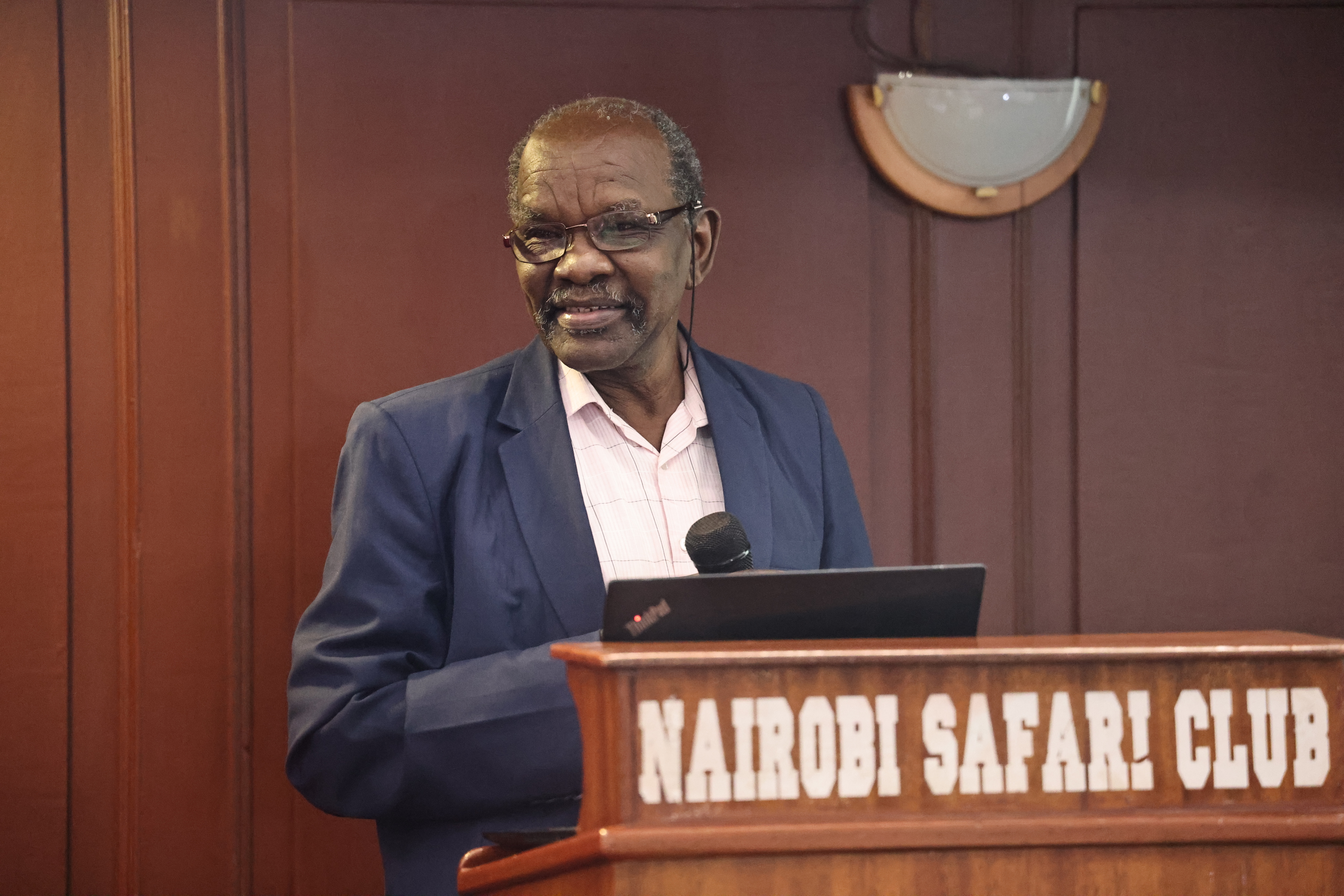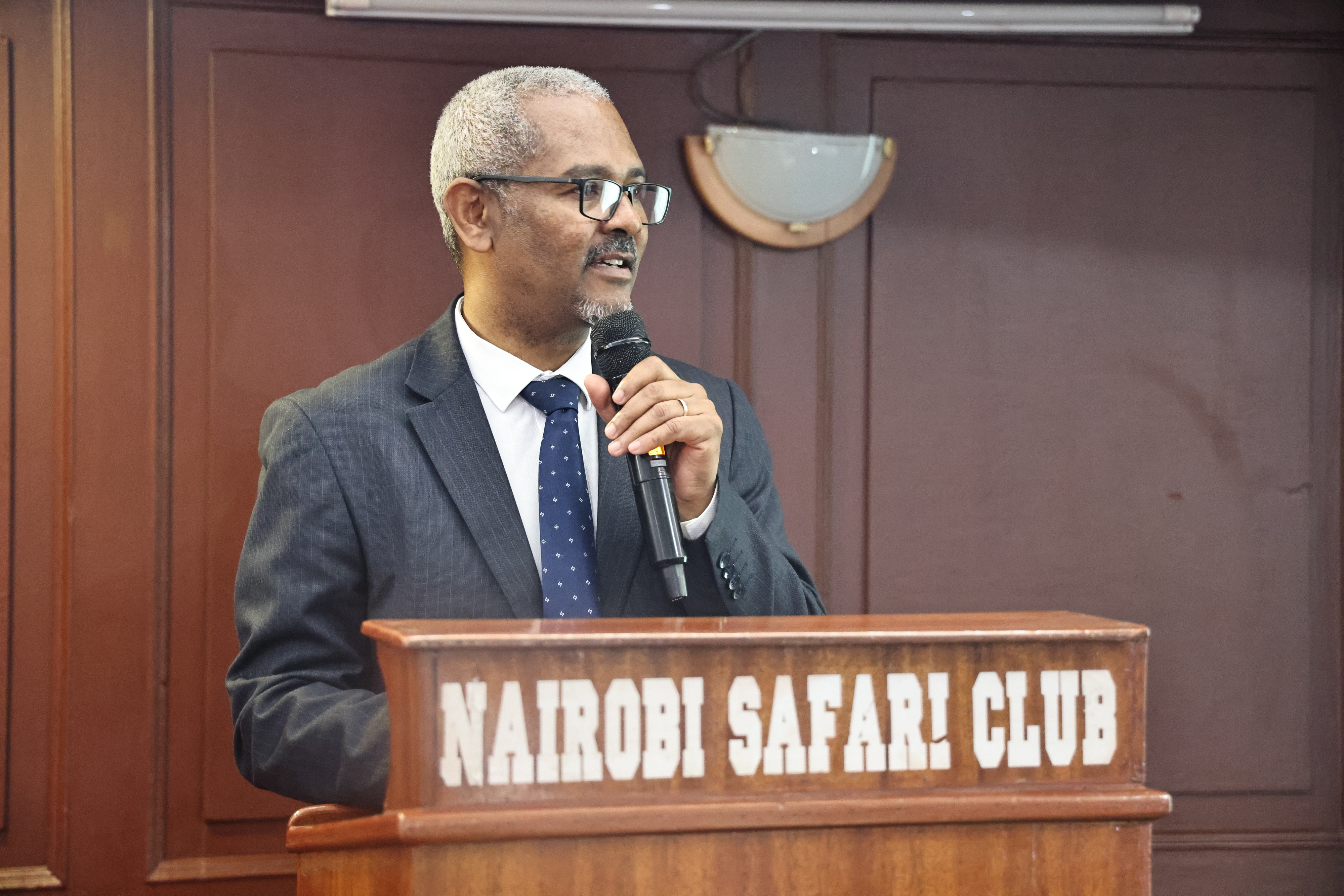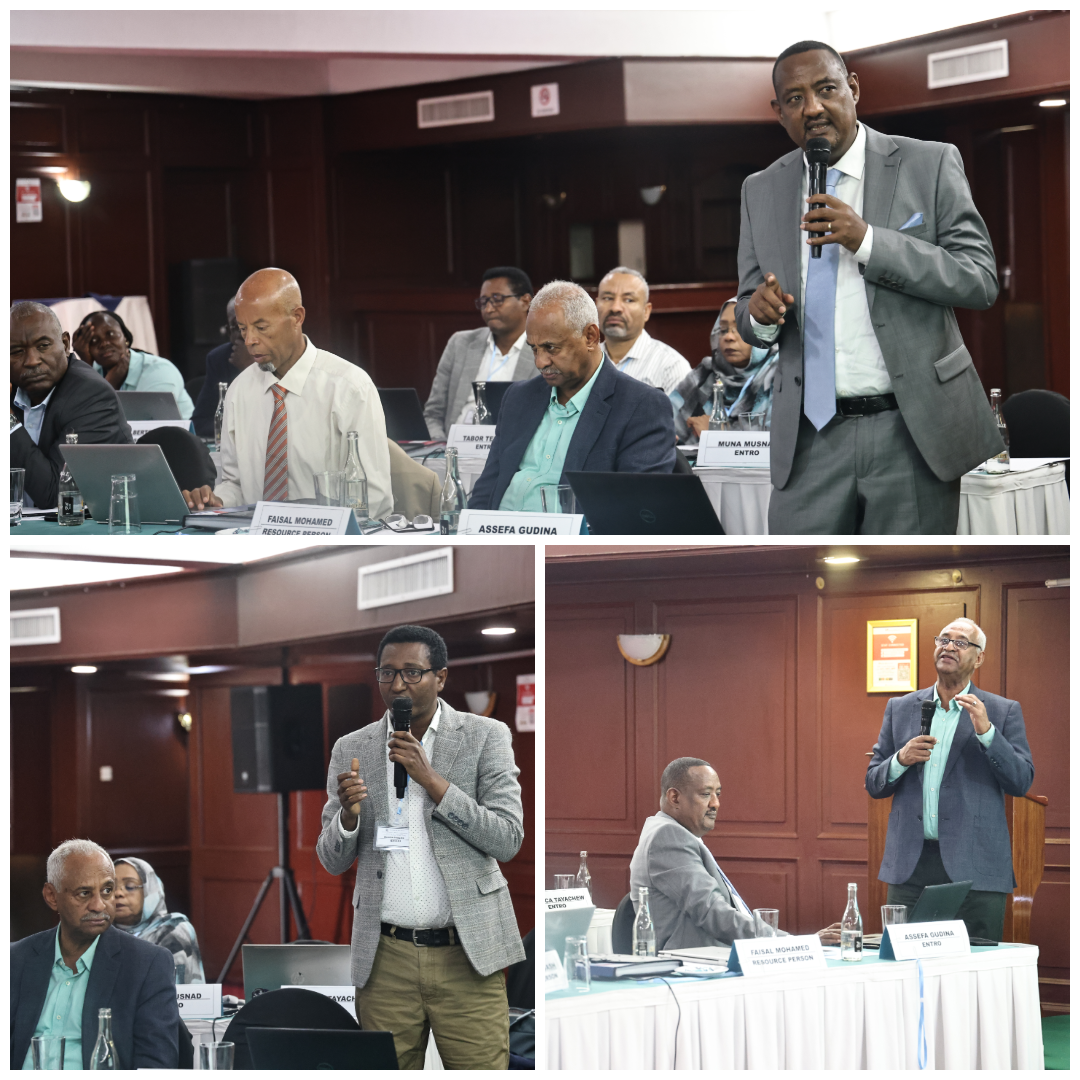💧🌍 Building cooperation through #HydroDiplomacy, media & gender equality!

The Hydro-diplomacy, gender& media training is taking place in Nairobi Kenya from today September 15-17, 2025. The main objective of this stakeholder's consultative training workshop is to engage critical Eastern Nile stakeholders which include the community leaders, gender representatives, hydro-politicians, diplomats with good knowledge of Nile issues and wisdom to share, media houses, journalists to promote all-inclusive Eastern Nile cooperation and minimize misunderstanding and mistrust that hinders the shared vision.
During the opening remarks ENTRO Acting ED Eng. Teshome Atnafie warmly welcomed the participants to the Hydro-diplomacy, gender& media training workshop. on his welcoming remarks the Acting ED Eng. Teshome emphasizes that effective water management in the Nile Basin requires broad stakeholder participation at all levels—local, regional, and international.
The basin faces pressing challenges such as water variability, rising demand, environmental degradation, and climate change, which call for cooperative action. Eng. Said that “For water management to effectively integrate the goals of efficiency, sustainability and equity, full participation of broad cross-sectional stakeholders is needed.” The forum is designed to foster dialogue, share experiences, address gender balance, and lay the foundation for stronger collaboration, including potential joint declarations.

On his final remarks Acting ED gives acknowledgment to the World Bank for its technical and financial support and finally encouraged participants to engage actively, share insights, and contribute to enhancing cooperation and sustainable management of the Eastern Nile’s vital water resources.
ENTRO Acting ED Eng. Teshome Atnafie
Sudan ENSAP leader Dr. Salih Ahmed on his speech he calls for strengthening negotiation capacity and strategic diplomacy to manage shared resources peacefully and equitably. Dr. Salih highlights the media’s pivotal role in shaping perceptions, correcting misinformation, and amplifying the benefits of regional cooperation—urging closer collaboration between journalists and water professionals.

On gender, the speech stresses the importance of inclusive participation, noting the disproportionate burdens carried by women in Africa, and advocating for context-sensitive approaches that empower all members of society.
Sudan ENSAPT leader Dr. Salih Ahmed
Ethiopia ENSAPT Leader and Chair Dr. Zebene Lakew highlighted that the Eastern Nile Basin as a shared lifeline that sustains communities, ecosystems, and culture, while acknowledging the complex challenges of climate change, population growth, and competing demands. Dr. Zebene emphasized hydro-diplomacy as a key tool for dialogue, negotiation, and cooperation in managing shared waters.
On his speech he underscored the vital role of media in shaping narratives, raising awareness on water scarcity and climate change, and inspiring collective action. He also reaffirmed that gender inclusion is essential for sustainable development, calling for women’s voices to be elevated in decision-making.

The ENSAPT Chair states that the three-day training is designed to strengthen understanding of these themes, foster collaboration among stakeholders, and equip participants with tools for effective communication and governance.
Finally, the Chair expressed gratitude to development partners, ENTRO, and facilitators, and officially declared the training open.
Ethiopia ENSAPT Leader and Chair Dr. Zebene Lakew
From the training workshop the following Key outcomes are expected: -
- Equip EN governance with a thorough understanding of hydro-diplomacy concepts and tools to support effective and fair negotiations among EN countries; improve media personnel's capacity to provide accurate, evidence-based reports on transboundary water issues and ensure the public is well-informed; and empower gender specialists to advocate effectively for and incorporate gender equality principles within transboundary water management.
- Stakeholders discussed and strategically planned for the continuation of key NCCRP achievements, establishing a clear path forward to ensure their lasting impact beyond the project’s period.
- ENTRO knowledge products related to NCCRP results presented to the stakeholders and disseminated to promote the benefits of cooperation.

